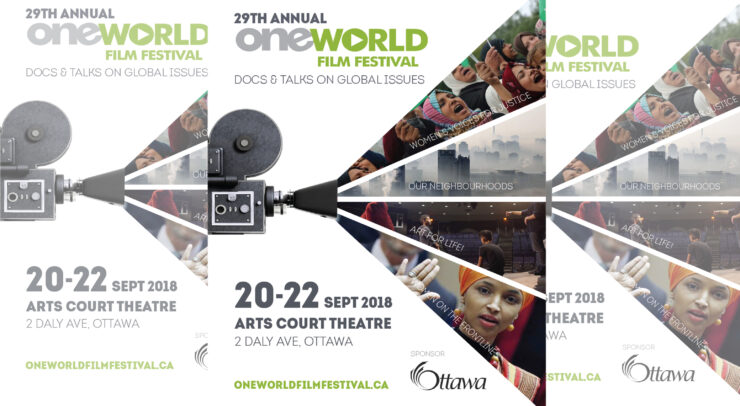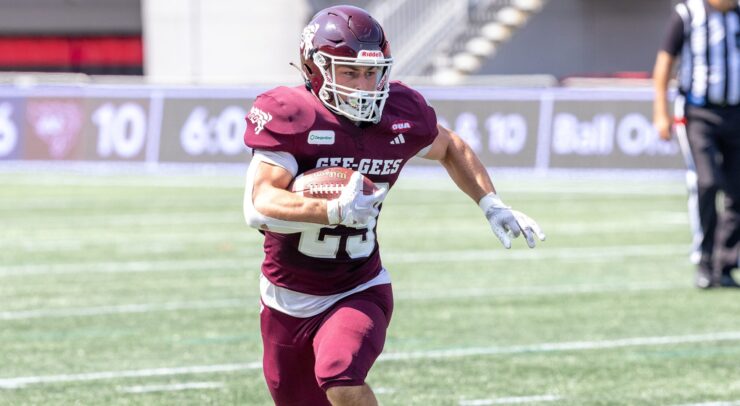
BEFORE MARCH 5, not many people knew who Joseph Kony was. Today, a video titled Kony 2012 has over 74 million views on YouTube. Kony 2012 is a campaign started by Invisible Children, an American organization fighting for the rights of Ugandan children who have been forced into active membership in Joseph Kony’s Lord’s Resistance Army (LRA).
Kony 2012 is an awareness campaign centered around the 30-minute video. It calls on supporters to “make Kony famous” by spreading the word about what he has done. As soon as the video debuted, the Ottawa chapter of Invisible Children began mobilizing support.
“The video is out there, but I don’t think that’s enough,” said Maria Granados, a first-year translation student who is coordinating Kony 2012 events on campus. “It’s kind of natural to want to do something.”
Granados said she and a team of volunteers are organizing a “blitz day” at the end of March, holding information sessions and movie screenings to spread awareness of the campaign.
“There’s a really big group of people behind us and still supporting us, so that’s good to see,” she said. “It’s not so much about Invisible Children—it’s really based on Kony. I find it’s important people know what he’s done.”
The video calls for supporters to come together on April 20 and “cover the night.” Volunteers are asked to buy Kony 2012 merchandise and poster their neighbourhoods with it to make those unaware of the campaign do their research.
“It will be the really big day when the rest of the public sees what’s going on,” said Granados. “April 21 will be really fun to see when people realize what happened overnight.”
Nicole Jones, a fourth-year international development student at the U of O, is the event manager of Invisible Children Ottawa. The organization is looking for school and neighbourhood representatives throughout the city.
“What we’re trying to do right now is get people coordinated and organized so they can put up posters and let people know who Kony is around their neighbourhood,” said Jones. “What Ottawa is trying to do is focus on the whole objective of making Kony famous.”
Jones said Ottawans can expect several events, including parliamentary protests. She also urges supporters to write to their member of Parliament, the senate, and other members of the House of Commons.
“I think there’s a responsibility that comes with the location,” said Jones. “We’re in Ottawa and we’re where the federal government makes its decisions. But I think if we were located anywhere else in Canada we would want to generate the same amount of action.”
Jones and Granados hope Canadian Prime Minister Stephen Harper will acknowledge the campaign and bring Kony to the International Criminal Court once he is caught.
“I think the whole idea of Cover the Night is to make people aware of this issue and policy-makers like Stephen Harper and the government aware that this is definitely an issue that’s affecting people in Ottawa and is something people in Canada are pretty passionate about,” said Jones.
Marc Ellison, who conducted International Development Research Centre-funded research in Uganda last summer recording the experience of formerly abducted women, said the Kony 2012 campaign and video should be taken with a grain of salt.
According to Ellison, the LRA hasn’t been active since 2006, and instead of sending military forces and possibly starting a war in an attempt to capture Kony, Invisible Children should instead work with the child soldiers who need to be integrated back into society.
“I agree wholeheartedly with the fact that Kony needs to be brought to justice,” said Ellison. “The thing that [irritated] me was the approach [Invisible Children] are taking. The whole played like a half-hour MTV video.
“It’s insulting to the fact that it really didn’t tell the whole picture,” he added, saying contrary to what the video claims, the LRA isn’t active in Uganda. “They want to mobilize people—the end game being bringing Kony to justice—but they skipped over how they’re actually going to do it. “
Ellison said raising awareness is not enough and concrete actions need to be planned to achieve the set objective.
“They say, ‘buy an action kit,’ but how exactly is that money going to help?” he said. “I’m not saying don’t donate—I’m saying before donating, think of the potential ramifications of that donation. Be better informed.
“It’s supposed to be a peaceful movement, but it’s almost advocating war-mongering,” added Ellison. “How are we going to do that? We’re not sure where the LRA are … and we’re talking about sending in a group of marines into several countries. The LRA is not above revenge killings.”
Granados said despite widespread criticism for the campaign, there are many supporters who are still willing to fight for the cause.
“We’ve been getting a lot of criticism and there are a lot of people out there against us and maybe they’re not really on board with what the organization represents,” she said.
“But I feel that bringing Kony to justice is something we can all agree on, so maybe if they don’t support Invisible Children, they can still make an effort to raise awareness about Kony—because he’s the one we’re really going after.”
“Someone who commits these kinds of crimes against children should be able to be brought to justice and face the consequences of their actions,” Jones said.
—Jane Lytvynenko





